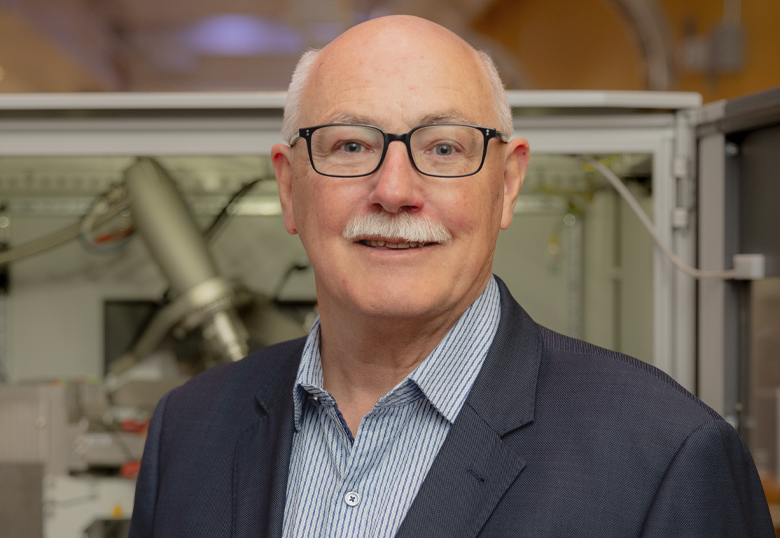An internationally recognized inorganic chemist and leader in his field of chemistry, Professor Emeritus Dr. René Boeré has been named the 2024 winner of the University of Lethbridge’s Speaker Research Award.
Boeré has inspired his fellow scientists within the Department of Chemistry & Biochemistry at ULethbridge since he became a faculty member in 1988. In addition, his work has spawned collaborations with scientists at universities across the globe, all while leading a highly productive research program that has been continuously funded for more than 30 years.

The Speaker Research Award recognizes the importance of research, scholarship and performance to the philosophy and goals of the University.
Boeré will be presented with the Speaker Research Award at Spring 2024 Convocation, Ceremony I, on Thursday, May 30, 2024, at 9:30 a.m. in the 1st Choice Savings Centre gymnasium.
René Boeré
Professor Emeritus Dr. René Boeré has had a major impact on the Department of Chemistry & Biochemistry at the University of Lethbridge, where he served as Chair for a decade and was an active proponent for a new science building. He devoted countless hours to propelling the department forward and procuring specialized state-of-the-art equipment such as X-ray diffractometers and spectrometers. He has been continuously funded by Discovery Grants from the Natural Sciences and Engineering Research Council (NSERC) for more than three decades.
Boeré has also been at the forefront of his field, developing and employing new concepts and techniques and sharing them with colleagues and students at other universities. His broad-ranging expertise includes electrochemistry, X-ray crystallography, sulfur-nitrogen chemistry and he is a leader in a technique called electron paramagnetic resonance spectroscopy. His unique skill set has earned him recognition around the world. Other chemists seek him for possible collaborations, and he has also been an external examiner for several PhD defences. Boeré has mentored many students at all levels as well as post-doctoral fellows.
After earning an honours Bachelor of Science from Dalhousie University in 1979, Boeré then completed a PhD in inorganic chemistry at the University of Western Ontario in 1984. Following an NSERC post-doctoral fellowship at the University of Guelph, he received a Humboldt Research Fellowship, a prestigious fellowship for researchers with above-average qualifications, at the Free University of Berlin. Boeré joined the University of Lethbridge in 1988. While he faced many challenges in establishing his research program at the start, he persevered and has since succeeded in creating a program that rivals those found in larger chemistry departments. For evidence of his research productivity, one need not look further than his publication record, which includes more than 160 manuscripts in peer-reviewed journals, five reviews and book chapters and his work has been showcased in more than 120 conference presentations. He has involved undergraduate students in research and 45 publications have co-authorships with undergrads. Boeré has also mentored 10 master’s and six PhD students and trained three post-doctoral fellows and research associates. In addition to teaching at ULethbridge, Boeré has been a visiting professor and Humboldt Scholar in Germany, Brazil, Australia, Japan, Finland and France. He has extensive teaching experience in general and inorganic chemistry, solid-state chemistry, organic chemistry, analytical chemistry and aspects of physical chemistry.
Boeré has lent his expertise to organizations and committees within the University and outside organizations. He served as Chair for the NSERC Scholarship Selection and General Grant Distribution and the Canadian Council of University Chemistry Chairpersons. He was a member of the Canadian Society for Chemistry’s Degree Accreditation Committee from 2008 to 2014. Closer to home, Boeré was part of the University Library Committee and contributed to obtaining Canadian Society for Chemistry accreditation for the Bachelor of Science major. He also led efforts to obtain specialized scientific equipment.
